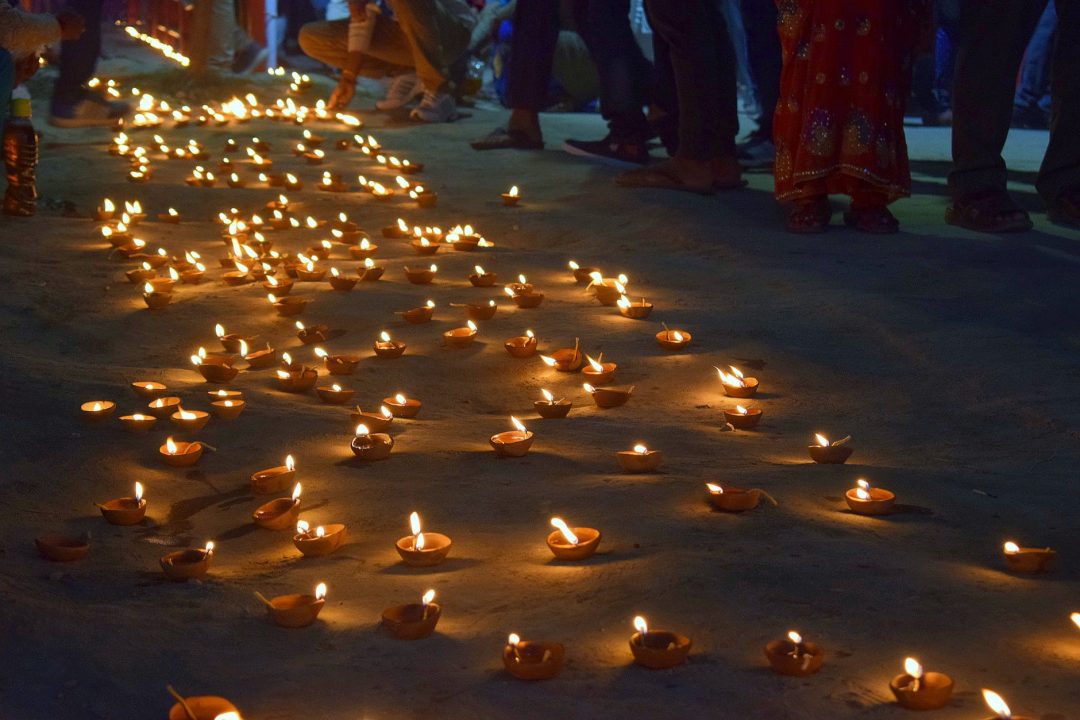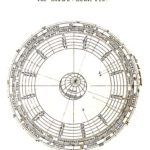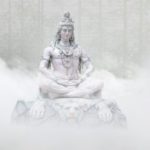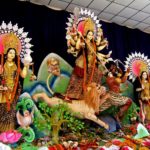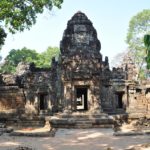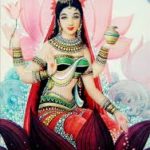The celebration of Diwali lasts six days, beginning on the 12th day of the month of Kartik (as per the North Indian lunar calendar). The day before Diwali, in order to evoke the grace of God, women fast.
It is not that God wants you to go hungry or takes pleasure in your suffering – the principle is that you gain only by giving up. That evening, devotees worship Gomata (the cow) and her calf and feed them special food. Women pray for the welfare of the entire family. This holy day is called Vasubaras.
The first official day of Diwali falls on the 13th of Kartik.
People set about cleaning houses and shops, and decorating doorsteps and courtyards with rangoli or multi-colored designs. They purchase gold ornaments, new vessels, clothes, and other such items.
Devotees arise early in the morning before sunrise and take oil baths. If possible, they wear new clothes. In the evening, people worship coins representing wealth. Houses and courtyards glow from the lights, and families decorate with lanterns. This day of celebration is called Dhantrayodashi or Dhanteras.
The second day is called Naraka Chaturdashi.
People take an oil bath in the early morning and then in the night they light lamps and burn firecrackers. People visit their relatives and friends, exchanging love and sweets.
On the third day, people worship Lakshmi, the Goddess of wealth.
People decorate their houses with lit lamps and lanterns to welcome Lakshmi to their homes and hearts. On this day businessmen close old accounts and open new accounts. The earth is lit up by lamps and the skies are colored by the multi-hued lights of fireworks.
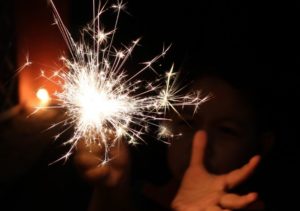 In North India, the Govardhana Puja occurs on the fourth day of Diwali. Devotees in the North build hillocks made of cow dung, symbolizing Govardhana, and decorate and worship them. North Indians observe this day as Annakoot, or the mountain of food.
In North India, the Govardhana Puja occurs on the fourth day of Diwali. Devotees in the North build hillocks made of cow dung, symbolizing Govardhana, and decorate and worship them. North Indians observe this day as Annakoot, or the mountain of food.
The fifth day of the festival called Bhaiyya Dooj celebrates unique and fun customs. Every man dines in his sister’s house, and, in return, presents her with gifts. North India calls it Yama Dwitiya. Thousands of brothers and sisters join hands and have a sacred bath in the river Yamuna.

